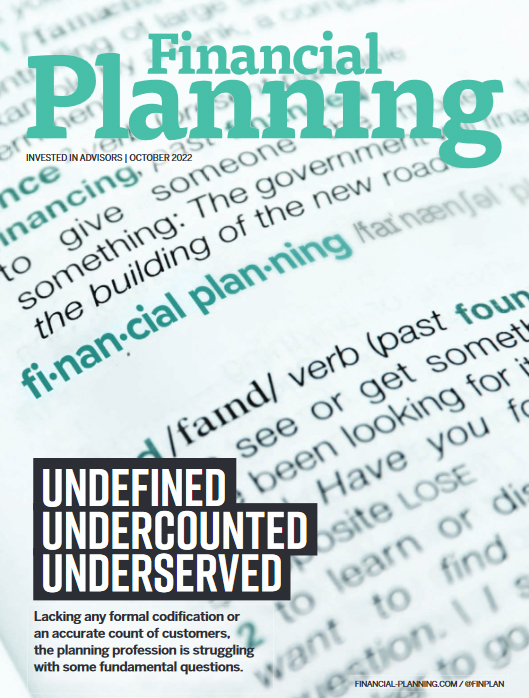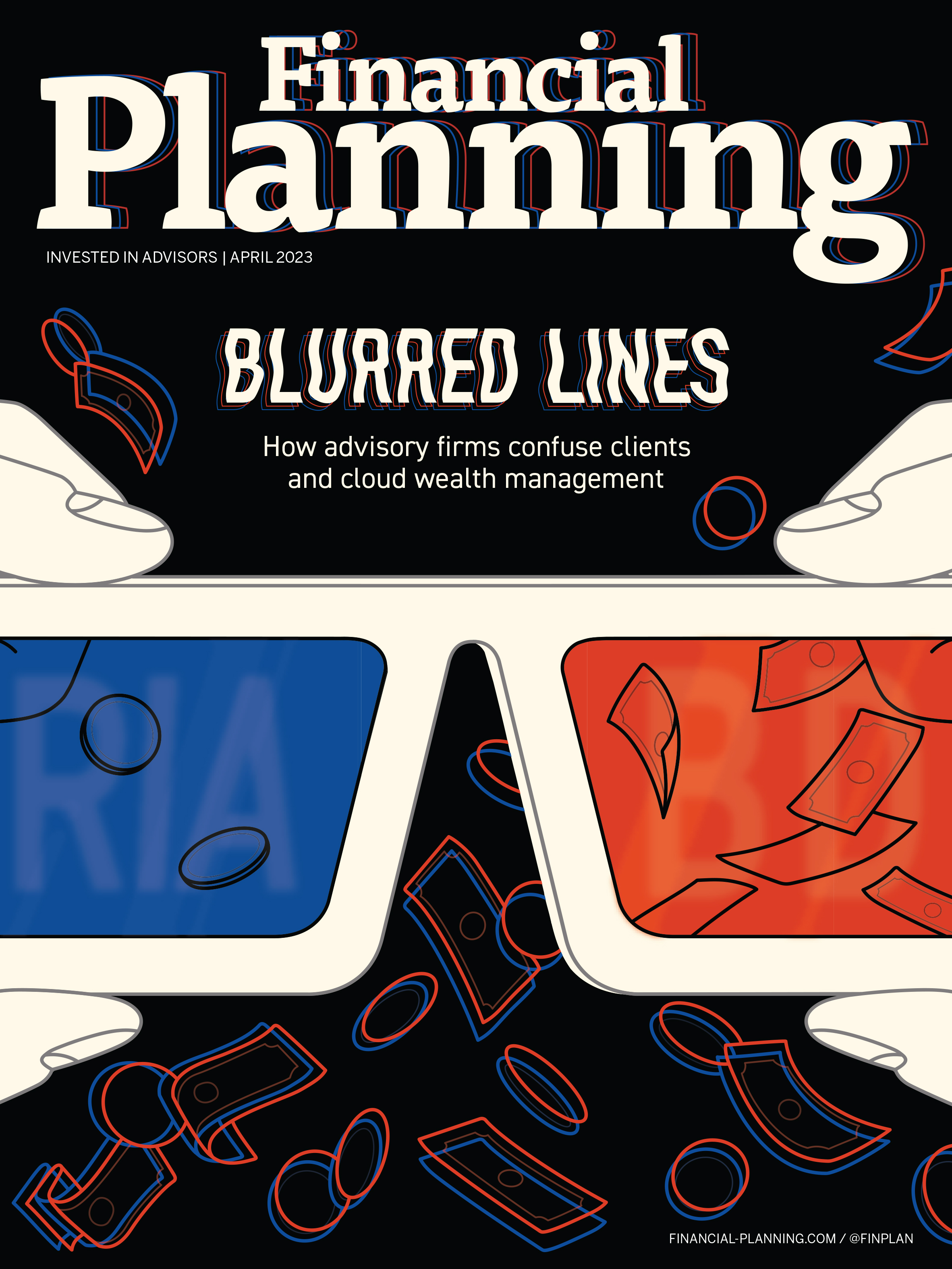Description
Looking to take control of your financial future? Look no further than Financial Planning magazine. This must-read publication is designed to empower independent advisors with the knowledge and practical information they need to grow their business and guide their clients. With a focus on practice management, investing, and client management, Financial Planning is your go-to resource for all things finance. And the best part? You can try it risk-free! Subscribe now and gain access to valuable insights and strategies that can help you successfully navigate the ever-changing financial landscape. Don’t miss out on this limited-time offer!
Try Financial Planning Risk Free!
Are you looking to take control of your finances and achieve your long-term financial goals? Financial planning is the key to securing a stable and prosperous future for you and your loved ones. By implementing a comprehensive financial plan, you can reduce financial stress, maximize your savings and investments, and ultimately achieve the financial freedom you deserve.
Benefits of Financial Planning
Financial planning offers a multitude of benefits that can positively impact every aspect of your life. Here are just a few:
Achieve financial goals
The foundation of financial planning lies in setting clear and achievable financial goals. Whether you dream of owning a home, sending your children to college, or retiring comfortably, a well-crafted financial plan will help you map out the necessary steps to turn your dreams into reality.
Reduce financial stress
Money can be a significant source of stress in our lives, but with a solid financial plan in place, you can alleviate some of that burden. Financial planning allows you to budget effectively, manage debt, and establish an emergency fund. By having a plan to overcome financial challenges, you can enjoy peace of mind and focus on other important aspects of your life.
Maximize savings and investments
A crucial aspect of financial planning is optimizing your savings and investments. With a well-diversified portfolio tailored to your risk tolerance and goals, you can ensure that you are making the most of your financial resources. Financial planning also encourages regular contributions to your retirement accounts, allowing you to take advantage of compounding interest and build a nest egg for the future.
Getting Started with Financial Planning
Embarking on the journey of financial planning may seem overwhelming at first, but taking the first step is crucial to your long-term financial success. Here are the essential steps to get you started on your financial planning journey:
Assess your current financial situation
Before making any financial decisions, it is essential to have a clear understanding of your current financial standing. Take an inventory of your assets, liabilities, income, and expenses. This will help you identify areas for improvement and highlight any potential hurdles you may face.
Set financial goals
Once you have a clear picture of your current financial situation, it’s time to set your financial goals. These goals should be specific, measurable, achievable, relevant, and time-bound (SMART). Whether short-term or long-term, having clearly defined goals will give you a roadmap to follow and keep you motivated throughout your financial planning journey.
Create a budget
A budget is the foundation of any successful financial plan. It allows you to track your income, expenses, and savings, ensuring that you are living within your means and saving for the future. By scrutinizing your spending habits, you can identify areas where you may be overspending and make adjustments to align your financial decisions with your long-term goals.
Understand your risk tolerance
Investing is an essential part of financial planning, but it comes with its own set of risks. Understanding your risk tolerance is crucial to constructing a well-balanced investment portfolio suitable for your individual circumstances. A financial advisor can help you assess your risk tolerance and guide you toward investments that align with your goals and risk tolerance.
Choosing a Financial Planner
While the prospect of managing your finances may seem daunting, you don’t have to go it alone. A qualified financial planner can be an invaluable resource to guide you through the intricate world of financial planning. Here are some tips to help you choose the right financial planner for your needs:
Research credentials and experience
When seeking a financial planner, it’s essential to do your due diligence. Look for credentials such as Certified Financial Planner (CFP) or Chartered Financial Analyst (CFA). These designations indicate that the planner has met the rigorous educational and ethical standards required to provide comprehensive financial advice. Additionally, consider their professional experience and specialization to ensure they are well-equipped to address your unique financial needs.
Consider fees and compensation structures
Financial planners have various fee structures, and it’s crucial to understand how they are compensated for their services. Some planners charge a flat fee, while others receive commissions based on the financial products they sell. Be sure to ask about the fee structure upfront and choose a planner whose compensation aligns with your preferences and best interests.
Schedule initial consultations
The relationship between you and your financial planner is built on trust and communication, so it’s essential to find someone you feel comfortable working with. Schedule initial consultations with potential planners to discuss your financial goals and gauge their expertise and compatibility. This will give you a sense of whether they are the right fit for your needs.
Developing a Financial Plan
Once you’ve chosen a financial planner and gathered all the necessary information, it’s time to develop your comprehensive financial plan. Here are the steps involved in creating a customized plan tailored to your unique circumstances:
Gather necessary financial information
To create an accurate financial plan, your planner will need comprehensive information about your income, expenses, assets, liabilities, and financial goals. Be prepared to provide documentation such as tax returns, bank statements, investment account information, and insurance policies. The more information you can provide, the more customized and accurate your financial plan will be.
Analyze and evaluate your options
Your financial planner will take the data you’ve provided and analyze it to determine the best course of action. They will evaluate different strategies and investment options based on your risk tolerance, goals, and time horizons. This analysis will form the foundation of your financial plan and serve as a guide to help you achieve your goals.
Create a customized plan
Based on the analysis of your financial information and goals, your financial planner will create a customized plan that includes specific recommendations and strategies tailored to your needs. This plan will outline steps to optimize your savings, manage debt, and maximize investment returns. It will serve as a roadmap to help you navigate your financial journey successfully.
Implementing Your Financial Plan
Creating a comprehensive financial plan is just the beginning. To achieve your financial goals, you must take action and implement the recommendations outlined in your plan. Here’s what you need to do to effectively implement your financial plan:
Take action on recommendations
Your financial plan will likely include recommendations such as increasing retirement contributions, reducing unnecessary expenses, or diversifying your investment portfolio. It is crucial to take action on these recommendations promptly. By following through with the suggested strategies, you will be on track to achieve your financial goals.
Track your progress
As you implement your financial plan, it’s essential to regularly track your progress. Monitor your spending habits, savings, and investments to ensure that you are staying on track with your goals. Tracking your progress will allow you to identify any areas where adjustments may be needed and keep you motivated to continue making smart financial decisions.
Make adjustments as needed
Life is full of changes, and your financial plan should be flexible enough to adapt to these changes. As your circumstances evolve, reevaluate your financial plan and make adjustments as necessary. Whether it’s a career change, a major life event, or changes in the economy, staying proactive and adjusting your plan accordingly will ensure its continued relevance and effectiveness.
Monitoring and Reviewing Your Financial Plan
Financial planning is an ongoing process that requires regular monitoring and review to ensure its continued effectiveness. Here are some key steps to keep your financial plan on track:
Regularly assess your financial situation
Life is dynamic, and your financial situation can change over time. It’s crucial to regularly assess your financial standing and make any necessary adjustments to your plan. Review your income, expenses, and savings regularly to ensure that they align with your goals and current circumstances.
Review and update your goals
As you achieve certain milestones and reach your financial goals, it’s essential to set new ones. Regularly review and update your goals to ensure that they remain relevant and challenging. Setting new goals will give you something to strive for and keep you motivated on your financial journey.
Seek professional advice when necessary
While you may have a comprehensive financial plan in place, it’s always beneficial to seek professional advice when faced with complex financial decisions. Your financial planner can provide guidance and support during critical periods, such as major life events or economic downturns. Don’t hesitate to reach out to them for assistance when needed.
Financial Planning Tools and Resources
In today’s digital age, numerous tools and resources are available to assist you in your financial planning journey. Here are some popular ones:
Budgeting apps and software
Budgeting apps and software can help you track your income, expenses, and savings effortlessly. These tools often offer features such as expense categorization, bill reminders, and goal tracking, making it easier for you to stick to your budget and achieve your financial goals.
Investment calculators
Investment calculators allow you to assess the potential growth of your investments over time. By inputting variables such as initial investment, average annual return, and time horizon, these calculators provide valuable insights into the power of compounding interest and can help you make informed investment decisions.
Online financial education resources
The internet is a treasure trove of financial education resources. From articles and blogs to podcasts and webinars, there is a wealth of information available to help you expand your financial knowledge. Take advantage of these resources to deepen your understanding of financial planning concepts and stay up to date with the latest trends and strategies.
Common Financial Planning Mistakes to Avoid
While financial planning can be a transformative process, there are common mistakes that individuals should be aware of and avoid:
Failing to set specific goals
Setting vague or unrealistic goals can hinder your progress and motivation. Be sure to set specific, measurable, achievable, relevant, and time-bound (SMART) goals that align with your long-term vision. Specific goals allow you to track your progress effectively and ensure that you are on the right path to financial success.
Neglecting to establish an emergency fund
Life is unpredictable, and unexpected expenses can arise at any time. Failing to establish an emergency fund can leave you vulnerable to financial hardships and may force you to rely on high-interest debt. Make it a priority to save three to six months’ worth of living expenses in an easily accessible account to provide a safety net during challenging times.
Ignoring insurance needs
Insurance is an essential component of a comprehensive financial plan. Neglecting to adequately protect yourself, your family, and your assets through various insurance policies can leave you financially exposed in the event of unforeseen circumstances. Consult with an insurance professional to ensure that you have the necessary coverage to safeguard your financial well-being.
Take the First Step towards Financial Security
Financial planning is the key to achieving financial security and prosperity. By taking control of your finances and implementing a comprehensive financial plan, you can reduce stress, maximize savings and investments, and secure a brighter future for yourself and your loved ones. Remember, the earlier you start planning, the more time you have to achieve your financial goals. So take that first step, and embark on your journey towards financial success today!
More at: Financial Planning Magazine















Reviews
There are no reviews yet.